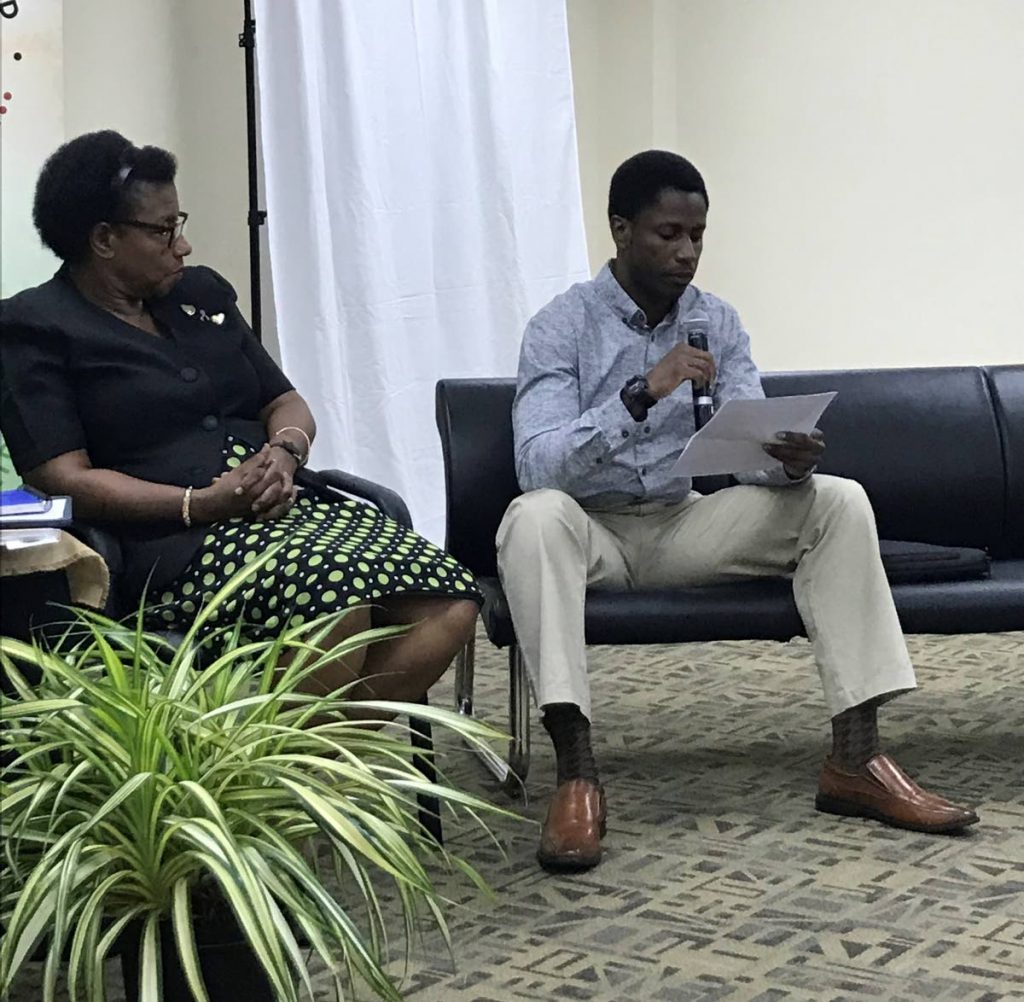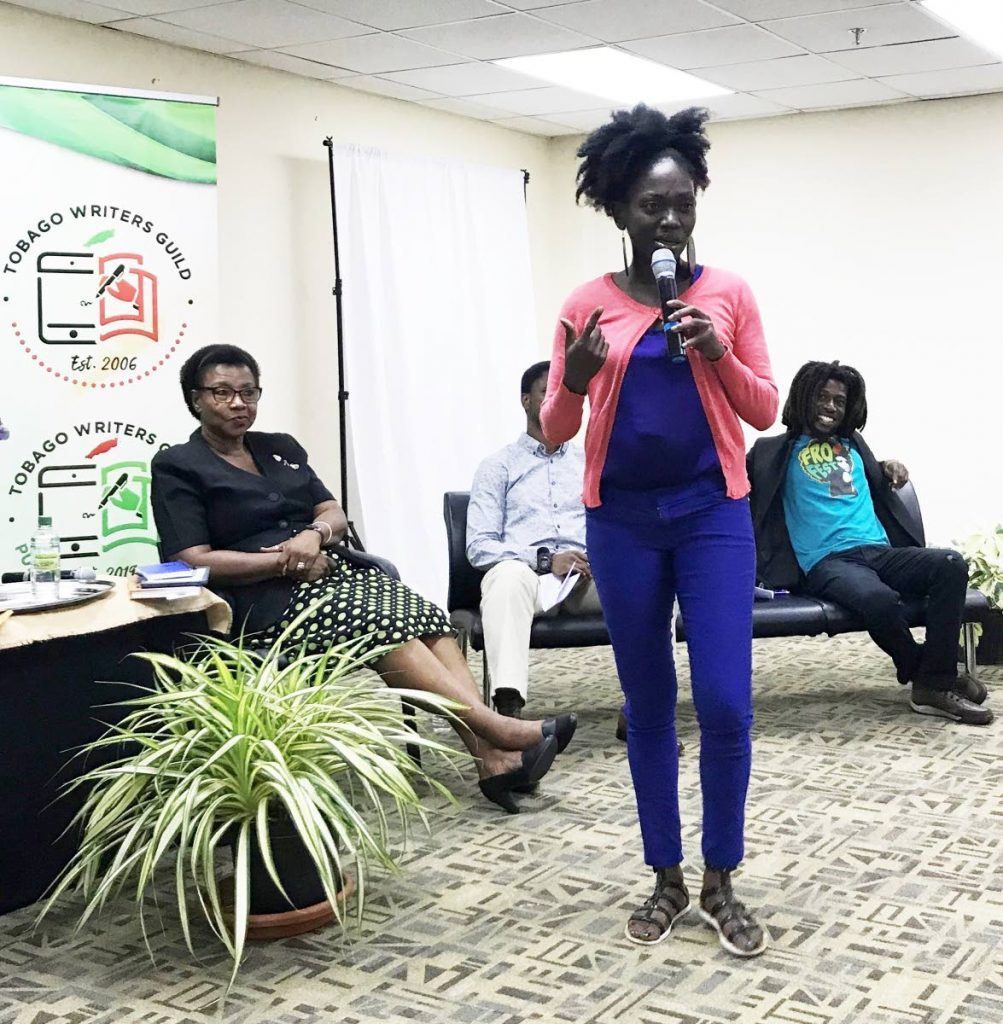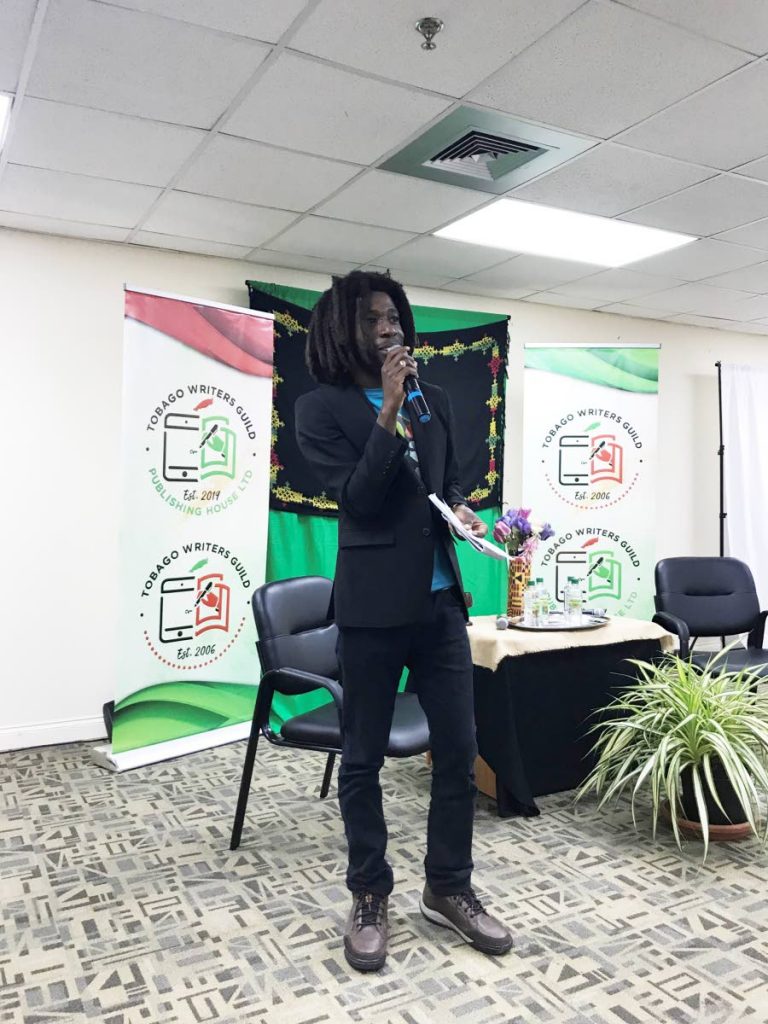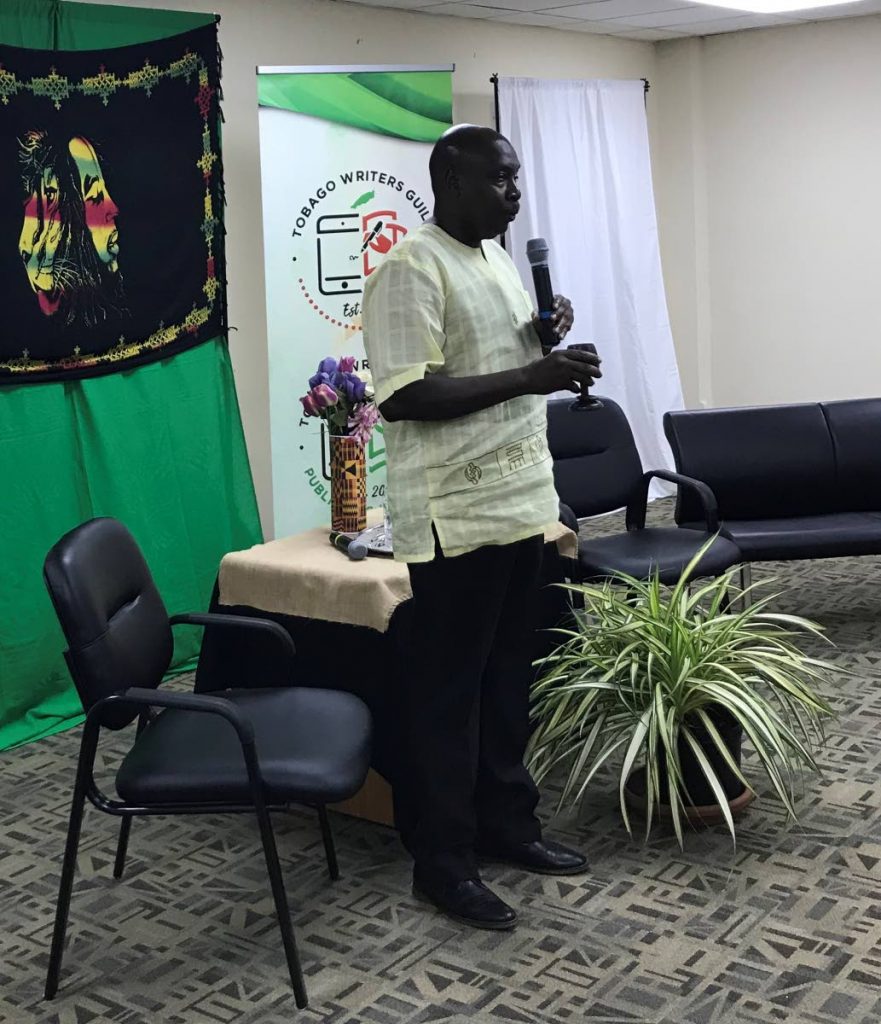Lecture series seeks post-slavery trauma solutions

SHAUN BIGGART-HUTCHINSON
Tobago Writers Guild and Tobago Library Services, joint organisers of their monthly lecture series, delivered a positive start to the new year – and decade – with the latest edition of this now regular fixture on the Tobago calendar.
Continuing where they left off after 11 sessions in 2019, this time the enlightening forum took the form of a panel discussion, focusing a critical eye on issues of self-care and healing. In the August 2019 session, a distinguished panel discussed some of the traumatic events endured during and after enslavement. In this edition, the panel participated with an interactive audience in finding solutions to the long-standing challenges of the post emancipation period.

Tobago Writers Guild president Rodney Piggott’s libation, inviting sincere reverence for ancestors, historical and otherwise, launched the evenings proceedings, after which moderator Xavier Gabriel Edwards set the tone, helming the panel discussion.
Panellists Laureen Burris-Philip, Rawls "Axeback" Titus and Dr Ryan Allard made observations and the audience, of varying age and experience, listened attentively.
The challenge posed – addressing the ongoing trauma, sometimes hidden, often blatant, which affect people of African descent even centuries after emancipation, and drawing out achievable solutions.

Using as a guide African American scholar Joy De Gruy’s poignant study, contained in her book Post traumatic Slave Syndrome – America’s Legacy of Enduring Injury and Healing, manifestations of the syndrome which, it was suggested, express themselves in cultural, political, social and other arenas in Tobago, were identified and debated.
Searching and difficult questions were posed, penetrating comments made and practical solutions suggested by an audience interested in the day-to-day expressions of the issue in Tobagonian life.
A proposal was made for a code to address a number of things including: nurturing more Tobagonian unity; more collaboration and less enmity between political parties to prevent disharmony; the role of organised religion in the spiritual life of the island; identifying and addressing the behaviour and attitudes of children, youth and adults, which could be attributed to post traumatic slave syndrome.
Iyana "Ms Melanin Magic" Philips’ emotionally-charged spoken word performance of her piece Rewind gave voice to this emotional, spiritual and psychological turmoil, but also articulated resilience and self-confidence.

Many informal conversations continued when the allotted time expired. Speaking after the event, attorney, TV personality and Tobago Writers Guild founding member Deborah Moore-Miggins captured the sentiment of the discussion with her statement suggesting word be turned into deed.
"My one challenge though is to pull all these sound ideas together and map out an action plan to make things happen. A committee is needed... a think-tank that it will not remain talk," she said.
The lecture series continues in February, when the debate will be a topical look on Tobago's Carnival and its distinction from Trinidad's.

Comments
"Lecture series seeks post-slavery trauma solutions"